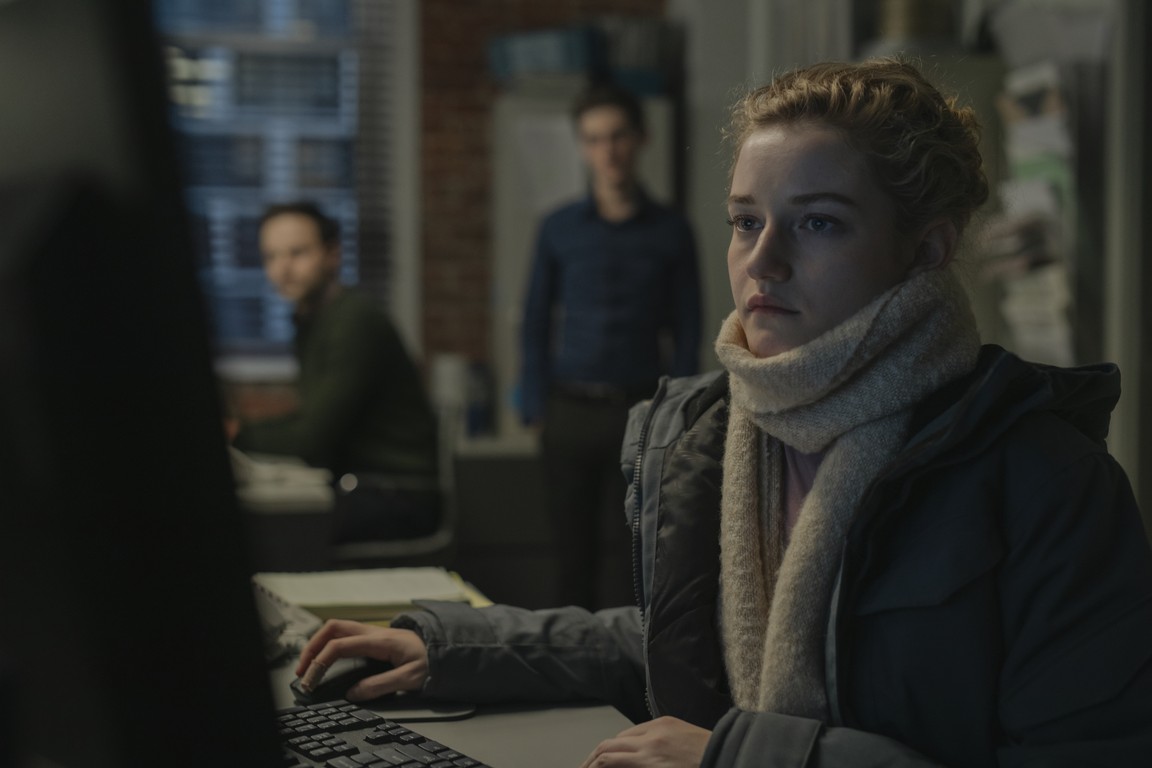Directed by Kitty Green, ‘The Assistant’ is a film about one day in the life of a young assistant named Jane (Julia Garner). Working for an entertainment mogul, her daily tasks are fixed. It revolves around the mundane tasks that hold no glamour like cleaning up, making coffee, etc. However, things go for a spin as the viewers are subtly but alarmingly made aware of the darker side of what goes on in her office.
The film plays with a different technique as it doesn’t see the need to name its characters. And while this may play to the necessary advantage of its themes, it creates a sense of inclusivity as well. In this regard, there are a lot of grounds the film covers.
Is The Assistant Based on a True Story?
The answer to this one is difficult, but the objective answer is no. However, the influences and source material behind it is as true as it comes. Jane, though a fictional character, is an eyewitness to the events that transpire in her office, especially relating to her boss. Though reviews and other articles on the film have pointed at Harvey Weinstein as the elephant in the room, the film is clearly much more than that.
It has been confirmed by Kitty Green in an interview with ‘The Rolling Stone’ when she said:“ I was seeing the same patterns emerge no matter who I spoke to. I went to the U.K., Australia, L.A., New York. I would hear a story from 20 years ago, from someone who worked in the U.K. for a predatory boss, and I’d hear the same story, with almost exactly the same details — like, on a yacht, in a specific place…”
Though Green’s initial focus was on the workers in Weinstein’s production company, and hence the allusion to the same within the movie, it has become a more significant project than that. The film serves as an allegory for the systematic oppression that takes place in workplaces like these, especially when it has a working exterior and a dark side brewing in the background.
Harvey Weinstein and Casting Couch
The predominant source of inspiration and tell-tale accounts have been from the case of the former film producer, who is now a convicted sex offender: Harvey Weinstein. The cases against him range from sexual assaults, rapes to blackmailing of over 80 women, which is alleged as even more. The event was further spurred on by the ‘Me too’ and ‘Time’s Up’ movement. The case, as big as it was and is, saw similar figures getting ousted from their predatory seats of comfort.
The film makes a clear reference to its pattern in the many things that Jane witnesses as an underdog assistant to her boss. In a scene in which she is cleaning the office sofa, she finds ample clues that both Jane and the viewers can use to understand what might have happened there. The white powder she cleans off the table, a stray earring she finds, can only mean so much. The building array of beautiful young women who visit the office is also no sheer coincidence. However, by keeping it anonymous without naming and stating clear cut facts, the film leaves much of its casting couch issues and the similarity it bears to many similar industries wide open. Everyone is able to pitch in the similarity of it with some or the other story they know.
Systemic Oppression in Workplace
The film goes a step further in also addressing the ring of oppression in a workspace that is hierarchical. This is like the food chain, wherein assistants are subdued by desk employees, and desk employees are subjected to harsh treatment by their managers. Thus, this long chain makes everyone party to the crime with the kind of power they hold. The film projects this idea, where Jane, the lowest in rank, is left to clean the mugs of others and is constantly picked on by two male employees, who, in their own way, dictates her on the best course of action to be taken. While they serve as superiors to her, they are subjected to yelling and shouting by their boss. It then serves as a critique of workspace culture that is continuously in this loop of systemic oppression.
Read More: Most Disturbing Movies

